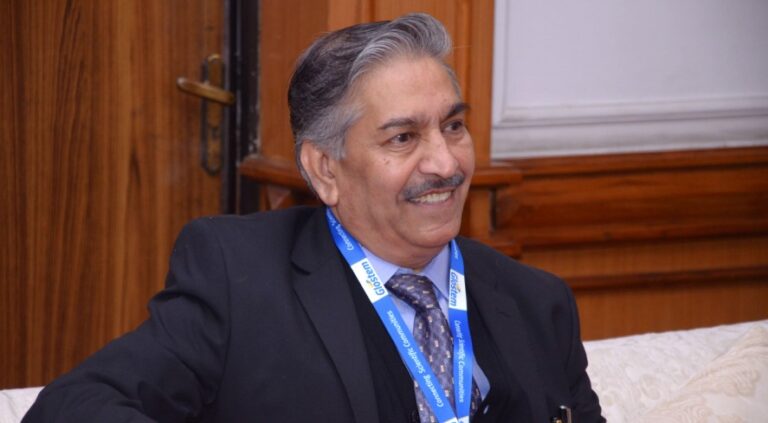Renowned plant biotechnologist, Prof. K C Bansal, has been elected as a Fellow of The World Academy of Sciences (TWAS) for year 2025, a prestigious recognition that highlights his significant contributions to the field of agricultural biotechnology and systematic management of plant genetic resources for crop improvement. This honour places him among the world’s top leading scientists, and among the select scientists in India in the field of Agriculture, Nutrition & Food Systems Sciences.
Prof. Bansal’s career, spanning over four decades, is marked by a series of pioneering achievements in plant genomics and biotechnology. With a profound focus of his research on functional genomics for abiotic stress tolerance, he coordinated a mega research network on transgenic development in several crops across different ICAR institutes, and collaborated with State Agricultural Universities in the country. These contributions of Prof Bansal on identifying novel genetic resources and pioneering genetic engineering efforts have become crucial in addressing national challenges in building climate resilient agriculture.
His extensive body of work has earned him numerous accolades, including the highest individual honour of the Indian Council of Agricultural Research (ICAR), the Rafi Ahmad Kidwai Award, as well as the Indian Science Congress Award, conferred by the Hon’ble Prime Minister of India, and the prestigious Haryana Vigyan Ratna award conferred upon by Hon’ble Governor and Chief Minister of Haryana.
After completing his doctorate with a Gold Medal from the Indian Agricultural Research Institute (IARI), New Delhi, Prof. Bansal pursued post-doctoral studies at Harvard University, Cambridge, USA and served as a Visiting Scientist at Rutgers University, USA under aegis of the Rockefeller Career Biotech Fellowship. His academic and research engagements currently extend internationally, as he serves as an Adjunct Professor at the Centre for Crop and Food Innovation, Murdoch University, Australia, and holds key advisory roles, including on the Board of Directors of the Global Plant Council and the Board of Trustees of the MS Swaminathan Research Foundation.
As a distinguished science leader, Prof. Bansal’s contributions have influenced national agricultural policies, particularly in promoting genetically modified (GM) crops and CRISPR-based genome editing technologies aimed at increasing food production and bolstering resilience against climate change. His leadership at the National Bureau of Plant Genetic Resources (ICAR-NBPGR) from 2010 to 2016 earned the Research Leadership Award, recognizing his excellence in research management and policy formulation.
His election to TWAS not only recognises his individual brilliance but also emphasizes the critical role of Indian scientists in global agricultural advancements. Prof. Bansal’s vision continues to inspire future generations of scholars and young researchers, strengthening the bridge between the cutting-edge science and practical agricultural solutions that benefit societies worldwide.
In addition to his research accolades, Prof. Bansal has served as Secretary of the National Academy of Agricultural Sciences (NAAS), India, and as elected Vice-Chair from Asia for the UN Commission on Genetic Resources for Food and Agriculture. His influential career reflects a steadfast commitment to scientific progress and collaborative global leadership.
Prof. KC Bansal’s induction as a Fellow of TWAS stands as a testament to his enduring impact on the field of agricultural biotechnology and his dedication to fostering innovation for a resilient and sustainable future.
Prof. K C Bansal’s Biography and Scientific Achievements
The Legacy of a Visionary Scientist: Advancing Plant Sciences and Crop Biotechnology
Born in 1955, Prof. Bansal’s path into science began humbly in a small town, guided by familial encouragement to excel in academics. His educational journey, marked by tenacity and intellectual curiosity, would eventually lead him to global recognition as a leader in plant biology and biotechnology research, policy development and public outreach for crop improvement through genetic engineering and genome editing approaches…
For Full Article-

